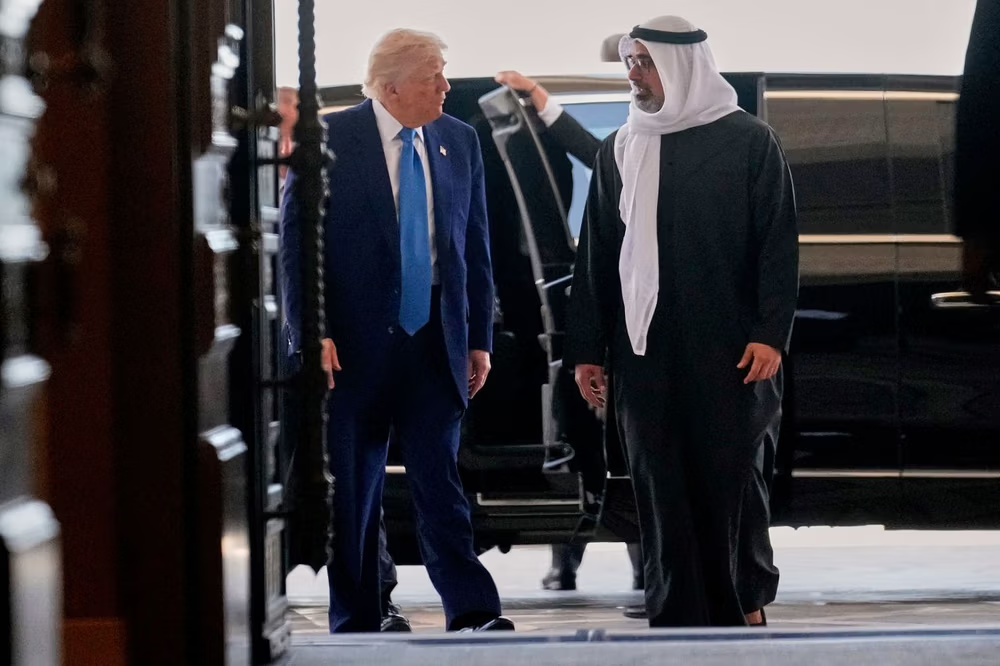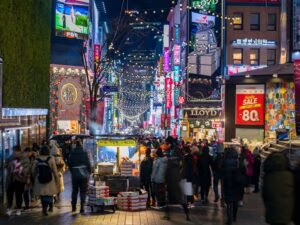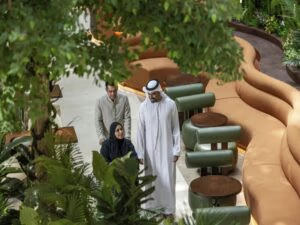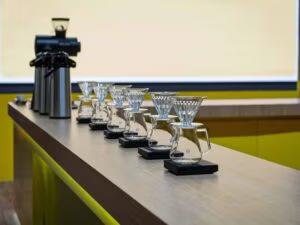U.S. President Donald Trump arrived at Qasr Al Watan, the presidential palace in Abu Dhabi, on Friday morning for a breakfast roundtable with American and Emirati business leaders.
The event, hosted by UAE President Sheikh Mohammed bin Zayed Al Nahyan, marked the final leg of Trump’s three-stop tour across the Middle East.
Friday’s agenda includes a tour of the Abrahamic Family House, an interfaith complex comprising a mosque, synagogue, and church — a symbol of the UAE’s promotion of religious tolerance. Trump is scheduled to return to Washington later today aboard Air Force One.
Qasr Al Watan, normally open to the public for tours, shopping, and dining, was closed Friday to accommodate the high-level visit.
During the U.S.-UAE business exposition held at the palace, Trump reflected on his administration’s role in fostering international investment, voicing frustration at the possibility that future leaders could take credit for projects he says were initiated under his tenure.
“You know the sad part, whoever’s next president, let’s just say whoever — he’s the next president. ‘What a great job they did.’ Look—- I built all these plants. I built all these factories,” Trump told attendees.
“Can you imagine – I’ll be sitting at home, who the hell knows where I’ll be, and I’ll say, ‘I did that,’ and everyone will say, but somebody’s gonna be cutting a ribbon, as well… Somebody’s going to be taking the credit for this. You remember, press: This guy did it,” he continued.
Throughout the trip, Trump has made sweeping claims about the scale of Middle Eastern investment in the United States, initially suggesting $1 trillion in planned deals, and later inflating the figure to “maybe $13 trillion” as he prepared to depart for Washington.
Also on Friday, Trump received a symbolic gift from UAE officials: a box containing a single drop of oil. The former president responded with humor, remarking, “This is the highest quality oil there is on the planet. But they only gave me a drop,” drawing laughter from the audience.
The gift may hold deeper significance. As one of the world’s top oil exporters, the UAE has increasingly turned its focus toward economic diversification.
In a widely cited 2015 statement, Sheikh Mohammed expressed the country’s long-term ambition to move beyond hydrocarbons: “In 50 years’ time, we will celebrate the last barrel of oil,” he said. “Oil was an exhaustible resource, and therefore we should lay down our future development plans based on this premise.”
While oil still accounts for around 60% of UAE government revenues, it contributes less than 30% to the country’s GDP — a significantly smaller share than in many neighboring Gulf states.
Trump’s visit concludes a high-profile tour that sought to reposition U.S. alliances in the region and signal continued interest in cross-border economic collaboration.






